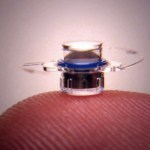Technology
There is a new blog you should check out: OpenSourcePhotography.org. It deals with, believe it or not, OpenSource stuff and Photography stuff. There is some real potential there, I hope it develops.
There is apparently a big fight among OpenSource community members about whether or not Ubuntu (pronounced Ubuntu) gives back to the community. In my view, not knowing much about the debate, the fact that the vast majority of desktops and laptops that run Linux these days do so because Ubuntu did what it did should be plenty, but apparently there is more to it than that. The fight, really,…
This, from adelady, is so well put I just had to highlight it. It is a response to the usual "we'll just deal with whatever climate change throws at us later" inactivist argument:
The one thing we do have in our favour is our astounding intelligence - it's also astounding how we fail to use that intelligence intelligently. As far as dealing "with any changes that occur", why on earth would we not use our wits to ensure that changes are minimised or directed in a way that best suits us? Cleverness, innovation, imagination - these are not mysterious, magical properties that will emerge in…
Which Kindle should you buy (or beg the relatives to give you for your birthday)??? The Regular 6 inch Kindle or the fancier Kindle DX?
It is said that the two extant technologies .... Kindle-like low power ePaper displays vs "real tablet computers" will merge.
I'm sure this is true. It is just as sure as the fact that almost every computer monitor sold to the average customer is the shiny hard to read kind instead of the more functional non-shiny kind. And when the technologies merge, the marketing departments will grin and the users will squint.
Does any of this matter to you now?…
Every couple of weeks, there's another bunch of stories about how e-books are transforming the world, and paper books will soon survive only as collectible fetish objects. It occurred to me this morning that I share a house with a reason why paper books will be around for a while yet, at least in some markets. In fact, I share a house with the cutest reason why paper books will be around for a while yet:
That's SteelyKid with an alumni magazine, not a book, but you get the basic idea. And a lot of the time, she's much less gentle with her reading material:
Kate and I have both largely…
Item 1:
Linux has perfectly good fonts these days, and they are getting better.
Patents held by Apple Corporation did not allow basic technology (the Bytecode Interpreter)to be implemented in Linux fonts (without paying). FreeType (the Linux font system) worked around this and things were workable, but still, having the Apple technology would have been better. But now....
As of May 2010, those patents have expired and as of July 12 with version 2.4.0, Freetype ships with the Bytecode Interpreter enabled. Version 2.4.1 was released July 18 to address a small bug found in 2.4.0. Freetype is…
My initial reaction to the financial meltdown caused by the housing bubble was "Are our business leaders really that stupid?" Things like this news squib from Inside Higher Ed make me suspect the answer is "yes, they are that stupid":
Business schools -- including such prestigious ones as those of Columbia and Harvard Universities -- are adding courses on social media to the M.B.A. curriculum, Business Week reported. The rapid growth of social media has many companies wanting to know more about how to use various tools, creating an opening for new M.B.A.'s who want to make themselves more…
These data were scraped by security consultant Ron Bowles, using code that scans Facebook profiles and collects all data not hidden by privacy settings. Which, as some but not all of you know, are probably not set the way you think they are set for your account.
You can have the data if you want. Click here to download it.
I'm a little unconcerned about these data being spread around. I was already available to anyone who simply went on (after joining) facebook.
Bowles did this in order to highlight the fact that stuff you put on Facebook is pretty much like stuff you leave around on…
A bit more than a month ago, I got a Sony Reader as a birthday present, upgrading my electronic book-reading platform from an old Palm Pilot. this is, obviously, not as sexy as a Kindle or a Nook, but then again, it doesn't involve me paying fees to use wireless services and further stoke my Internet addiction, so that's more or less a wash. Anyway, since I've been using this extensively for a month, now, I thought I'd post a few impressions:
-- First and foremost, the e-ink display is very nice. The one crippling flaw of the Palm Pilot method was that I couldn't read outdoors or in bright…
Geoengineering is getting more and more attention in political discussions as well as research. I am by no means a proponent of any geoengineering scheme I have heard of and the majority of them try to address surface temperature only and therefore do nothing about "the other CO2 problem", aka ocean acidification.
I must confess that H. E. Taylor's article a while back went some way in convincing me that like it or not we need to be considering these perilous pathways. He basically makes the compelling argument that we are in fact now, unwittingly or not, geoengineering our global climate…
My grandmother suffered in her old age from macular degeneration, a common age-related eye disease that causes the center of your visual field (the macula) to gradually fritz out. As it affected her more and more, the font size in her emails ballooned to cartoonish sizes. She began walking with a cane, and needed a fancy electronic doo-dad to tell her when her cup of tea was full. By the end of her life, she was totally blind.
Watching my grandmother wink out from the world of seeing was tragic; the knowledge of macular degeneration's heredity terrifying. Relatives of those who have…
I'm kind of curious about how people read the site, in particular the ScienceBlogs front page, so:
I look at the ScienceBlogs front page:customer surveys
As a bonus, if you feel so inclined, take a look at the front page, and leave a comment letting me know what you think. Is there something they ought to do with it that would make it more useful/attractive to you?
Corexit was a big news topic at the beginning of this tragic Deepwater Horizon oil spill in the gulf of Mexico but it seems little talked about now.
There is no question that BP's calculation in its decision to use so much of this toxic chemical prioritizes the cosmetics of the situation over ecological impact and the health of cleanup crews. So much more important is PR that BP has not just refused to provide respirators to displaced fisherman labour crews, they threaten them with firing if they use their own!.
They don't care where the oil-dispersant mixture goes or what it harms as long…
tags: The 2009 Ig Nobel Prize for Public Health, humor, funny, comedy, fucking hilarious, sports, science, technology, invention, public health, gas mask, brassiere, streaming video
I know this is a little late, but the 2009 Ig Nobel Prize for Public Health Prize was awarded to Dr. Elena Bodnar for her invention of a brassiere that, in an emergency, can be quickly converted into a pair of protective face masks, one for the brassiere wearer and one to be given to a needy bystander of her choice. Her acceptance speech is absolutely hilarious (which is the reason I am sharing this with you today…
"You're holding it wrong," is apparently the latest 'advice' from Apple's Steve Jobs. When the iPhone 4 first came out, people noticed a lot of signal drops. To me, that would not be surprising because the iPhone requires the AT&T service, which, in Minnesota, totally sucks. There are vast areas of my own personal geography where AT&T has zero signal, and most of the rest of it ranges from acceptable to sucky.
But it turns out that the iPhone had low-bars to an extent beyond that expected. In early July, Apple explained this as a software problem. The signal was fine, but the…
If you picked up The Poisoner's Handbook (amazon.com) looking for a fool-proof recipe, I hope you have read the book through and realized at the end that such a thing does not exist: you'll get busted. If they could figure it all out back in 1930s, can you imagine how much easier they can figure out a case of poisoning today, with modern sensitive techniques? And if you have read the book through, I hope you found it as fascinating as I did. Perhaps you should use your fascination with poisons to do good instead, perhaps become a forensic toxicologist?
My SciBling Deborah Blum (blog, Twitter…
tags: Close Encounter with a Whale Shark in the Gulf of Mexico, marine biology, field research, research, technology, whale shark, Rhincodon typus, satellite tags, Gulf of Mexico, BP, Gulf Coast Research Laboratory, University of Southern Mississippi, streaming video
Whale Shark, Rhincodon typus, feeding in the Gulf of Mexico.
Image: Gulf Coast Research Laboratory Whale Shark Research.
Despite being the largest fish species in the world, measuring over 40 feet in length and 35 tons in weight, whale sharks are quite mysterious. We know they are plankton filter feeders, and we recently…
I can see this as instructional material while dissecting a real frog, getting a feel for its texture, smell, seeing the individual differences between the way multiple frogs look on the inside, but not as a replacement of the real thing. What do you think?
About a month ago, I told you about the book-reading event where Scott Huler (blog, Twitter, SIT interview) read from his latest book On The Grid (amazon.com). I read the book immediately after, but never wrote a review of my own. My event review already contained some of my thoughts about the topic, but I feel I need to say more, if nothing else in order to use this blog to alert more people about it and to tell everyone "Read This Book".
What I wrote last month,
"I think of myself as a reasonably curious and informed person, and I have visited at least a couple of infrastructure plants, but…
On the other hand....read: Lesson From Social Media Day: I'm An Expert, Too.
This is a guest post by professional photographer Scott Rowed, describing his experience in switching from Windows to Linux.
Does Linux have the tools for a professional photographer?
A few months ago I would have answered "no". After switching primarily to Linux I gradually migrated my computer activities away from Windows. While there are some good open source imaging tools in Linux, there always seemed to be some missing function, forcing me to boot into Windows for serious image editing.
I'd developed a complex workflow for Windows over the years. Irfanview for browsing the RAW files…

